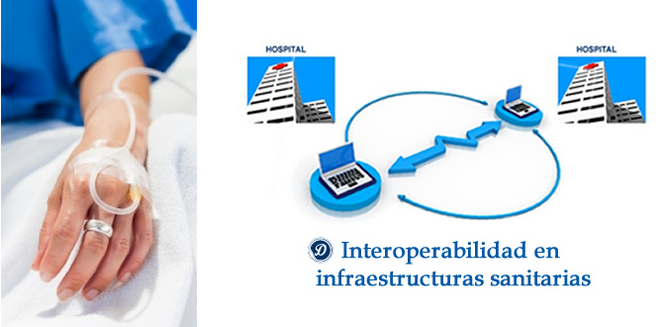
The interoperability of Social-Health System in Spain
Before introduce our vision of interoperability of social-health system, it is needed to understand that interoperability is the ability of two or more systems or components to exchange information and to use the information that has been exchanged. As organizations incorporate applications / different computer systems, they generate what is known as “islands” of information, which end up generating gaps in services as well as inefficiency bags. Interoperability is the design and construction of bridges between the islands of information.
The Social-Health system in Spain, as well in Europe, consists on a large number of organizations, public and private entities: healthcare systems, social agencies, patient associations, services companies, nursing home, etc. Each of these organizations provides the services we need to develop our lives and those of our loved ones, in a comfortable way taking into account parameters of quality and efficiency.
One doubt that often arises in meetings with different partners is the real need to develop an interoperability framework for the social-health system. The intuitive answer to this approach is like building roads, tunnels and bridges, without prior planning. Does anyone find reasonable such approach?

However, in general, when organizations develop strategic plans for information technology (IT) tend to look inward, focusing mainly on achieving their own goals (an apparently optimal island). Further progress in this direction certainly hinders the 360º approach (continuity in health and social services). The challenge is to go beyond the internal problems and look outside. It needs to take advantage of the information generated by all organizations, so that, they can share and use the data, to generate new knowledge.
So we must begin to understand and to harmonize the needs of users and organizations from a scientific and technical systematic view. Once the doubt of working on a strategic framework of interoperability is clarified, the following question emerges: why is it necessary to base a local or regional strategy on international standards? Why is it not possible to make a local or an ad-hoc approach?
One possible approach to this question is associated with the sustainability of the work and to take advantage of an accumulation of knowledge (not reinventing the wheel). Therefore, in order to advance into a strategy of interoperability between of social and health information systems, it is critical to be based on international interoperability standards. These standards are promoted by Standards Development Organizations (SDOs) with the need to work actively through scientific and technical committees that contributes to the necessary evolution of standards forums.

Thanks to the experience of CARTIF, participating in different SDOs, as well as in the Cluster SIVI (Cluster of Innovative Solutions for Independent Living) and the EIP AHA (European Innovation Partnership on Active and Healthy Ageing), we conclude that a strategy to develop a framework of interoperability in social-health system, could open the door to cooperation between organizations in different fields, who want to be an active part of the social and health services. The beneficiaries of this cooperation are all users of the system (all of us!!), because it could be optimized and rationalized the use of resources, something that is extremely important to ensure the sustainability of the social-health system. On the other hand, this would increase the transparency and competitiveness of technology to develop new solutions that can be extended in a simpler way. Finally, we are convinced that the approach of advancing within a framework of interoperability in the social-health system will help develop new products in emerging technology SMEs. Solutions that succeeding locally, will be able to scale their solutions to a global market in a simpler way.